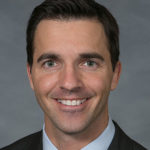
We have gone from seven known cases to 32 in five days
March 16. By Dave Yochum. What a difference two weeks make. The state identified its first case of coronavirus March 3; now there are 32 North Carolina residents testing positive in 13 counties.
Cornelius is slowly shutting down as more and more people work from home. Charlotte Mecklenbuurg Schools are shut for at least two weeks—and staff is scrambling to make the shut-down work.
Parents have contacted Cornelius Today about lunches for kids while they have to work.
Rhonda Lennon Cheek, a CMS board member, said the school system will be opening summer feeding centers quickly, within the next couple days. ”We also also looking into other ways to get food to kids,” she said. An announcement is expected today.

CHEEK
The big new Starbucks on West Catawba is open, but it will shut down the gathering spaces tomorrow. Only the walk-up counter and the drive-up window will be open, according to a staffer.
Restaurants and other small businesses are in a world of hurt, with customers and accounts receivable grinding to a halt.
The CDC and state health department official say nine new coronavirus cases have brought the state’s total to 32, as of Sunday.
There weren’t any a week ago.
The situation is serious. Over the weekend, Mayor Woody Washam signed a county-wide emergency declaration that was hand-delivered to him along with the mayors of Charlotte, Davidson, Huntersville, Matthews, Mint Hill and Pineville. As of Monday morning, Mecklenburg County confirmed two cases.
The declaration will not only help provide access to state and federal funds, but hopefully encourage people to stay home.
Town officials are concerned about staff, first responders and citizens.

JACKSON
The Town Board meeting tonight will take place with minimal staff. You can watch online at www.cornelius.org.
The CDC says events with more than 50 people should be cancelled for at least eight weeks.
There is a rapidly increasing number of cases and an issue around not just toilet paper, oddly enough, but coronavirus testing kids.
As of March 14 at 8 am, the state of North Carolina had a total of 680 public/non-commercial coronavirus test kits, according to NC Sen. Jeff Jackson.
There is a national shortage of test kits after the CDC rejected test kits that had a manufacturing error that allowed them to produce false positives.
”So they had to start over several weeks in,” Jackson said.
It appears we are now seeing the production of test kits ramp up from both the CDC and commercial labs like LabCorp, which is headquartered here in North Carolina.
Jackson said there is another major bottleneck: extraction kits.
”Before you can test the RNA sample from the nasal swab, you have to extract it. Doing so requires a specific chemical. The majority of this specific chemical (called a reagent) is produced by one company with production facilities in Germany and Spain,” Jackson said.
That specific chemical is now in very high demand.
There is basically a two-track testing system: public testing, which involves our main state lab in NC using the re-manufactured CDC test kits—in NC, there were only 680 test kits—and commercial testing.
Our two major hospital systems, Atrium and Novant, are now saying that they are going to provide “screening” beginning this week.
Jackson said it is unclear whether they are simply collecting swabs and sending them to LabCorp (where they may face the same extraction kit bottleneck) or whether they’ve developed in-house capacity to actually produce their own test results.
But it’s important to note that BOTH public and commercial testing appear to be hitting a bottleneck when it comes to extraction.
”We are not screening nearly enough people,” Jackson said.
A major concern is social interaction. South Korea implemented a strict lock-down on social interaction, not so much Italy which is now the epicenter of the coronavirus.
How the state and the nation continues to respond will become clearer today.
This is essentially a race against time.
“Increasing our testing capacity within the next 10 days is absolutely critical. It’s also possible that the window of opportunity for containment—at least in some regions—is now closed and we’re going to have to rely heavily on social distancing to slow the rate of infection,” Jackson said.
He expressed confidence in state and local health officials. “These folks get it, and they’re working around the clock for us,” Jackson said.
Businesses are affected
Despite a half-capacity mandate for restaurants in New York—to maintain social distance—government officials are discussing a total shutdown in NYC to curb the spread of COVID-19.
It likely won’t happen here where personal choice and business owner rights are highly regarded.
Mayor Washam praised Choplin’s restaurant for quickly implementing a staff delivery service for fresh-made meals.
At The McIntosh Law Firm in Davidson, owner Bob McIntosh said “for now, we are open business.”
The Cornelius resident said the firm is limiting appointments and in-person conferences, relying on conference calls, emails, and other internet-based communication.
“Naturally, much of our community involvement has been curtailed due to cancellations. We are being careful in the office, increased cleanings and common area maintenance,” he said.
The courts are on limited schedules, but the clerks’ offices remain open and functional as usual.
Town officials are concerned about possible repeats of the exuberant close-packed crowds at Galway Hooker and Harp & Crown on Saturday March 14 happening again Tuesday which is officially St. Patrick’s Day.
It remains unclear to what extent the state government will clamp down on gatherings in restaurants.




